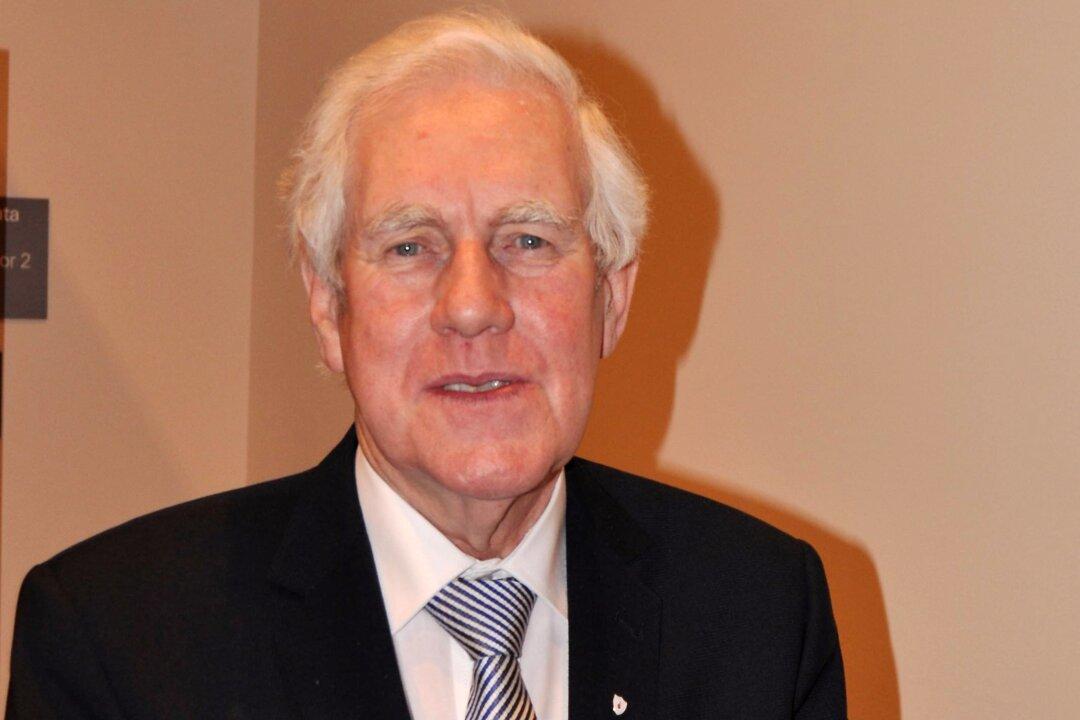Age Action is a charity which promotes positive ageing and better policies and services for older people. Working with and on behalf of older people, they aim to make Ireland the best place in the world in which to grow older.
Mr Eamon Timmins—Head of Advocacy and Communication with Age Action Ireland—told The Epoch Times about how the organisation is trying to live up to their mission.
Each year, Age Action Ireland organises Positive Ageing Week, which ran recently. “It’s one of the more cheerful sides of what we are doing, celebrating the fact that we are all living longer, it’s how we recognise the positive contribution older people are making to society. Very often that is ignored because most of the contribution is unpaid for. Unfortunately, in Irish society if you don’t pay for it, you don’t value it,” said Mr Timmins.
“It’s a celebration about the contribution that older people have made and continue to make to our communities, both as grandparents and volunteers, as community activists and good neighbours,” he said.
Age Action Ireland also addresses some of the more hard-hitting issues that older people have to face. They recently submitted their concerns on this year’s budget to the Oireachtas. Mr Timmins said, “Age Action has given a guarded welcome to Budget 2015, noting that some measures announced will ease a little of the hardship being experienced by groups of older people who have been struggling to cope in the wake of a series of austerity budgets.”
Measures such as increasing the entry point for the Universal Social Charge to 12,000 euro will mean savings equivalent to more than a week’s pension for older people on low incomes. The partial restoration of the Christmas bonus is also welcome, and will result in a cash payment of between 54 and 57 euro for State Pensioners.
“In our pre-Budget submission, we had sought a full restoration of this important payment at one of the most expensive times of the year for older people, when they are faced with large fuel bills,” said Mr Timmins. However, according to Mr Timmins, the government’s budget “falls far short of this, but the cash payment will help.”
Age Action welcomed the decision to increase the Living Alone Allowance by 1.30 euro to bring it to 9 euro per week, benefitting 180,000 older people. “This payment has not been increased since 1996, despite the increased hardship which older people face paying bills such as heating and property tax from a single pension,” said Mr Timmins. “We had sought an increase of 3.80 euro to restore some of the buying power of this payment, so the actual increase represents just a third of this. But it will provide some assistance.”
In the wake of austerity in recent times, Mr Timmins believes that older people had been forced to choose between food, fuel and medication because their budgets did not give them the option of being able to afford all three. He hopes the budget will be able to address this dilemma.
Changing times in Ireland
Culturally Ireland has changed a lot in the past twenty years, and commenting on this change, Mr Timmins said: “I think older people are living further away from their children, even in towns and cities people are moving to the outskirts. We would meet many people from Dublin’s inner city whose children have moved out to areas such as Tallaght, Swords or Blanchardstown—wherever new houses are—so that support that would have been there in the past is gone. We also have emigration on top of that now, that has lost another tranche of people in the last couple of years who would have been great support for their older parents.”
Mr Timmins doesn’t believe Irish society’s values towards older people have changed that much—it’s more to do with where people are living and that the pace of life has changed. “Whenever we have a crisis we see that society does support older people, it just doesn’t remember to do it too often with the rush of modern living,” he said.
Age Action Ireland is trying to address this shortfall. “We are looking at an inter-age programme to make sure we don’t have too big a gap between young and old. Actually they have a lot in common, a lot of mutual benefits from working together.” Positive ageing week is an attempt to address age discrimination and to highlight the positive aspects of older people.
“It is a good thing that we are all living longer: if we were dying younger we would be worried as a society. So it is an attempt to address that ageism that is creeping in there. Ageing tends to be described as a negative process, but for many older people it is a very rich time in their lives. Where they have time on their hands and they have experience and they have family and good, tight communities, it can be a very positive experience,” said Mr Timmins.
Technology
Age Action Ireland also addresses issues of exclusion via a Silver Surfer initiative in co-operation with Google.
“One of our members said to me before that she felt she didn’t have any value anymore, and when I said ‘what do you mean by that?’, she said: ‘Well, previously my daughter would have looked for recipes for this, that, and the other, for apple pie and such, but now she can go to Google and get a thousand apple pie recipes,” said Mr Timmins. “I had to remind her that there is only one recipe that her mother would have made!”
One negative impact that technology can appear to have is that “...people do feel that their role as a repository of knowledge and experience has been kind of been bypassed by technology, but it hasn’t really,” said Mr Timmins. “There might be information from the internet, but whether it is experience or knowledge is a different thing. What we are trying to do is ensure that the value and experience of older people is used, and not ignored or undervalued. Older people have a lot: they have lived through a lot, and they can pass on a lot to the next generation.”



